by Virginia Clean Energy President Silvia Zinetti, cross posted from Energy in Demand
Community Choice Aggregation (CCA) has been discussed in previous EiD posts. This innovative business model is gaining popularity in several states in the U.S. as a tool to support cities to increase sustainable energy and achieve their climate goals. In particular, cities in California have been able to fully embrace the opportunity and many have already achieved substantial results in promoting locally built renewable energy sources, along with many technological innovations from energy efficiency measures, smart grids, batteries, and so on.
A Tool to Empower Communities in the Sustainable Energy Transition
CCA is a tool that empowers communities in an integrated and inclusive way. This program brings together residents, businesses, and the local government to take active part in the energy transition and policymaking and bring positive changes in the community. While being key enablers for scaling up renewable energy and energy efficiency technologies at the local level, CCA programs add benefits to the local community that go beyond energy services, to include, economic, social and environmental benefits. A recent Feasibility Study published by Virginia Clean Energy investigated how the creation of a CCA program in Arlington County[1], Virginia, would support its 100% renewable energy goal, and provide other community co-benefits such as competitive rates, greenhouse gas (GHG) emissions reduction, renewable energy development, and energy efficiency program.
Preliminary Findings and Conclusion
Today the energy mix from the incumbent utility, Dominion Energy, is predominantly from nuclear, natural gas and coal with a small percentage of renewable energy.
The establishment of a CCA would allow Arlington County to tailor its power procurement to its long-term goal by procuring more renewable energy in the power mix. All three CCA scenarios analyzed in the study – Virginia Renewable Portfolio Standard goal, 50% renewable energy, 100% renewable energy – resulted in lower CO2 emissions than the utility.
Arlington emissions reductions would initially be derived through the purchase of unbundled Renewable Energy Certificates (RECs) on the wholesale market, while the CCA would increase direct purchases of local renewable energy over time. The purchase of unbundled RECs in the interim would still support the renewable energy market, as it encourages renewable electricity on a broader scale.
In terms of financial benefits, the CCA program would bring additional funds to the municipality estimated at $25–$30 million for 11 years of program operations. A portion of these funds will be used for managing the CCA program, thus making the CCA a 100% self-supported program, while the remainder could be reinvested in energy and climate related projects within the community.
The comparison between a CCA residential bill, procuring electricity via a third party on the wholesale market for 100% RECs, and a Dominion residential bill with the current power mix and tariffs in the case study analyzed, indicated the CCA bill would be a price-competitive option for most months, providing an average retail electricity price 7% lower for a CCA residential customer compared with Dominion.
Another benefit of the CCA is the possibility of fostering the uptake of energy efficiency measures within the community. Many CCAs in California directly offer or partner with programs offered by utilities, municipalities, and other organizations related to energy efficiency, distributed generation and energy storage, and demand response.
Though the study did not assess the ability of CCAs to implement energy efficiency in Virginia, Arlington County decision makers could explore various options for how to implement energy efficiency programs and measures similarly to CCAs in California.
Considerations
To fully transition to 100% renewable energy requires long-term vision and planning. The CCA is a tool that empowers communities to come together to elaborate on a successful strategy for reaching this goal. The findings from the study suggest that the establishment of a CCA program would allow Arlington flexibility in its power procurement to match its long-term energy and climate goals. The program would also bring several co-benefits to the local community beyond energy services. Most important, the study showed how a CCA program could be tailored to the local community to best match its needs and priorities.
Virginia Clean Energy
Virginia Clean Energy (VCE), a young nonprofit organization, has been working for more than two years to introduce the CCA concept to local governments, residents, and businesses in the Commonwealth of Virginia.[2] Recently, the organization released two new studies that would further support their effort to advance CCAs in the Commonwealth. The legal study evaluated the legality of CCAs generally under Virginia law, while at the same time identified some possible legal hurdles to implementation of a CCA by a Virginia municipality.[3] The feasibility study, which was carried out in partnership with the American Geophysical Union ‘s Thriving Earth Exchange Program, [4] investigated the economical and technical feasibility for a potential CCA for the Arlington County, a municipality in Northern Virginia.
About the Author: Silvia Zinetti, a regular contributor to EiD, is a sustainable energy expert and policy advisor, based in Arlington, Virginia.
[1] Arlington was chosen for the project due to its transformative Community Energy Plan, though Arlington is not an official partner of this effort.
[2] https://www.virginiacleanenergy.org/
[3] The legal study was carried out by the Environmental and Regulatory Law Clinic at the University of Virginia School of Law. More information at https://www.virginiacleanenergy.org/cca-legal-study.html


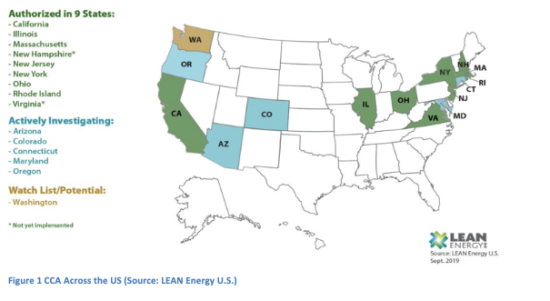
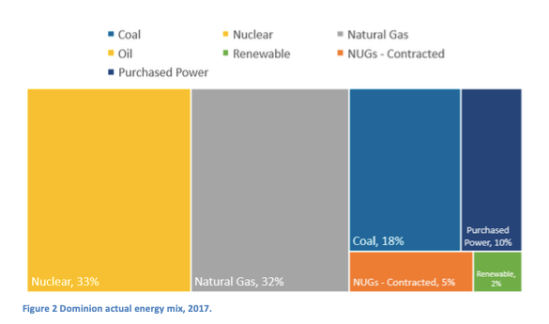
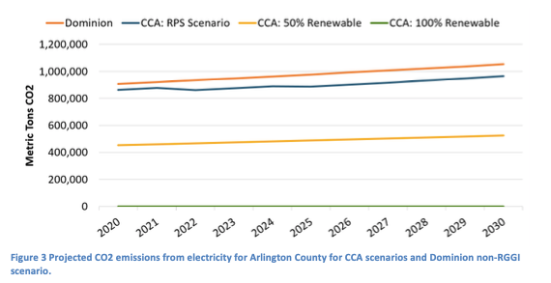
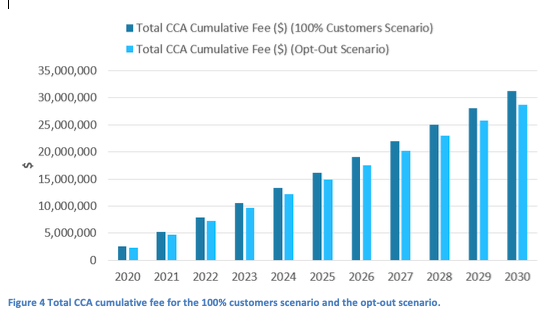
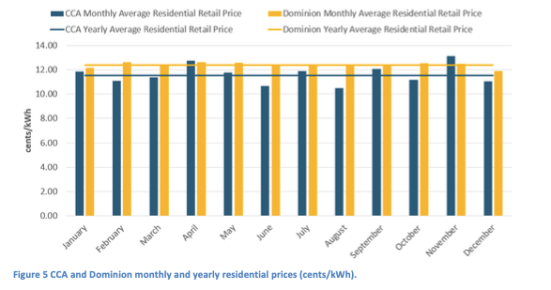
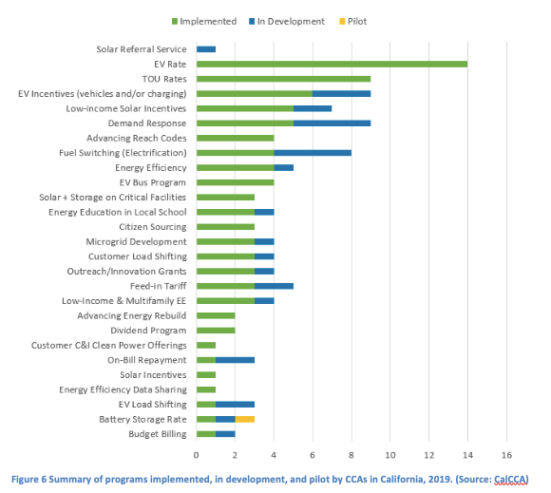
![VA DEQ: “pollution from data centers currently makes up a very small but growing percentage of the [NoVA] region’s most harmful air emissions, including CO, NOx and PM2.5”](https://bluevirginia.us/wp-content/uploads/2026/01/noxdatacenters-238x178.jpg)








